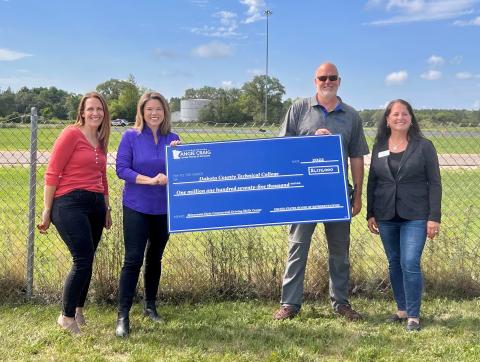Representative Angie Craig Visits Dakota County Technical College to Highlight Federal Investments in Career and Technical Education, Law Enforcement Training
Craig secured $1.175 million in Community Project Funding to provide much-needed improvements to the Minnesota State Commercial Driving Skills Center
ROSEMOUNT, MN – Yesterday, U.S. Representative Angie Craig visited Dakota County Technical College (DCTC) to visit the newly updated Minnesota State Commercial Driving Skills Center (CDSC) and attend a law enforcement driver training course. Earlier this year, Representative Craig secured $1.175 million in Community Project Funding to update and enhance the CDSC for the law enforcement officers and commercial driving students who use it for training.
"Expanding access to career and technical education has been one of my top priorities as a Member of Congress," said Representative Craig. "So, I am thrilled to see the track being put to good use and can't wait to see the improvements to come – this is infrastructure that will not only help prepare commercial driving students and law enforcement officers with enhanced skills and training, but will also make our roads safer and help keep our shelves stocked. It was great working with DCTC to secure these funds, and I look forward to finding more ways to give all our students the tools they need to succeed in a 21st-century economy."

The CDSC Project, sponsored by DCTC President Michael Berndt, addresses the severe shortage of commercial drivers in Minnesota by updating and enhancing the driving track at DCTC. Additionally, the DCTC uses the CDSC to offer a law enforcement driver training course, which offers learning opportunities for various levels and assignments of law enforcement personnel. The Community Project Funding will be used to resurface the CDSC pavement that is significantly deteriorating, making it safer for the law enforcement officers and commercial drivers who regularly use it for training.
Craig submitted her request for Community Project Funding (CPF) for the Fiscal Year 2022 Appropriations process, through which Members of Congress can request funding for up to 10 specific projects in their districts. In selecting which submissions to approve, the House Appropriations Committee has prioritized projects that address the most significant needs of local communities or provide a significant public good. The CPF program is being implemented with accountability measures to ensure a responsible and transparent process.
###
